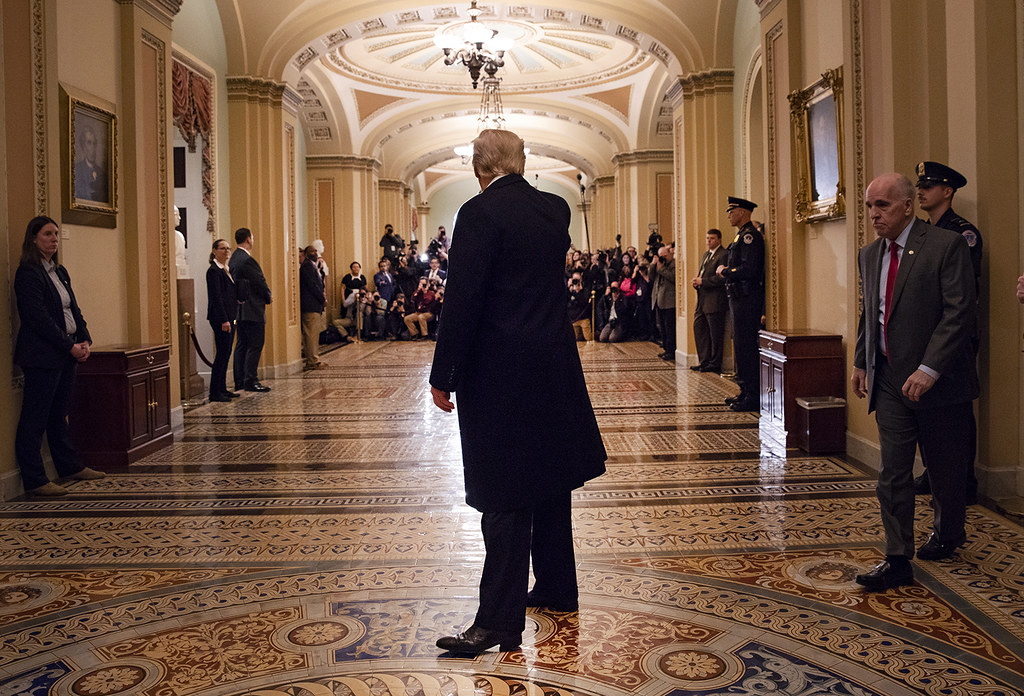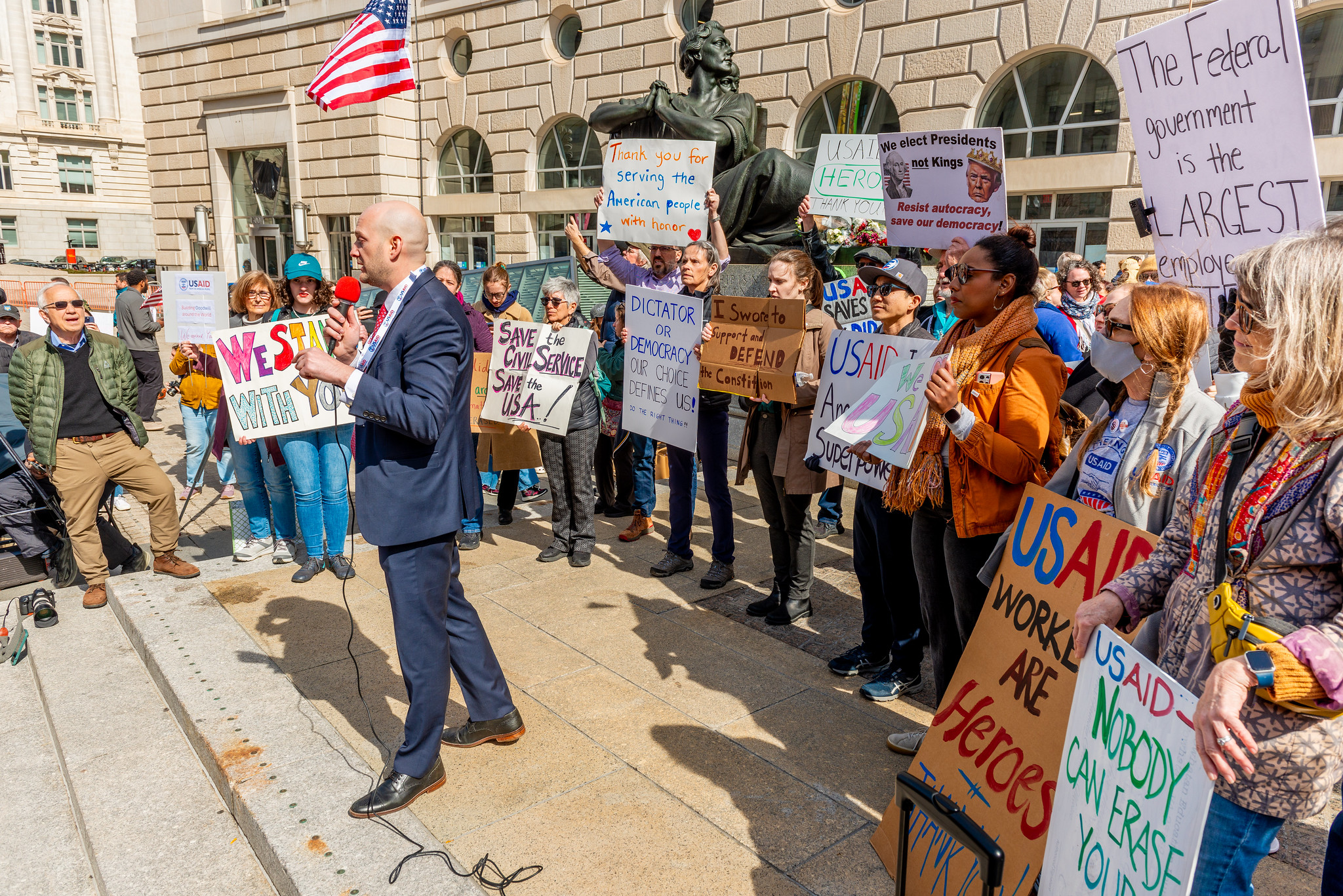The House Is Right to Move Toward an Impeachment Inquiry
It has been a month since the public release of the Mueller report, and House Democrats are still arguing over the merits of opening an impeachment inquiry. The Democratic leadership seems to be more or less in the same place it was immediately after the report’s release, when House Majority Leader Steny Hoyer, before walking his comments back, told the press that impeachment proceedings were “not worthwhile.” Even after Republican Rep.

Published by The Lawfare Institute
in Cooperation With

It has been a month since the public release of the Mueller report, and House Democrats are still arguing over the merits of opening an impeachment inquiry. The Democratic leadership seems to be more or less in the same place it was immediately after the report’s release, when House Majority Leader Steny Hoyer, before walking his comments back, told the press that impeachment proceedings were “not worthwhile.” Even after Republican Rep. Justin Amash called for the president’s impeachment over the weekend, House Majority Leader Nancy Pelosi said that she had not changed her mind about the downsides of an impeachment inquiry. But both the Washington Post and Politico have reported on dissent within Pelosi’s caucus, particularly among Democratic members of the House Committee on the Judiciary, and some of that disagreement is now spilling over into the public eye: The committee’s second-ranking Democrat, Mary Gay Scanlon, announced on May 21 that “the time has come to start an impeachment inquiry,” and Rep. Jamie Raskin of both the judiciary and oversight committees argued in the Post that “the logic of an impeachment inquiry is pretty overwhelming at this point.”
Shortly after the report’s release, Susan Hennessey and I wrote that if the House of Representatives “wants to actually confront the substance of the report, it will introduce a resolution to begin an impeachment inquiry.” The same is true today. The need for an inquiry is, as Raskin says, “overwhelming”—but the longer the House waits to take up its constitutional responsibility, the more it weakens its own case.
As Hennessey and I argued, the president’s conduct as described in the Mueller report amply meets the standard for beginning an impeachment inquiry. President Trump has lied repeatedly to the American people about the existence of a plot by a foreign government to interfere in a democratic election, and about his campaign’s connections to that plot; he repeatedly sought to abuse his power by impeding or doing away with an investigation into his own behavior; and he pressed for groundless investigations into his political opponents. Influenced by the Office of Legal Counsel’s (OLC) opinion prohibiting indictment of a sitting president, the special counsel withholds judgment on whether Trump committed a crime. But the report itself hints that, even with the door closed to prosecution, judgment of Trump’s conduct is squarely the responsibility of Congress.
The president’s behavior in the four weeks since then has not been mitigating. In fact, he has pushed again for the abuse of the law enforcement power to harm his opponents—this time, Democratic presidential candidate Joe Biden and his family. And he has adopted a posture of stonewalling all congressional requests for information in the many ongoing inquiries into him. This conduct echoes the third article of impeachment adopted against President Nixon in 1974, which accused Nixon of having “failed without lawful cause or excuse to produce papers and things as directed by duly authorized subpoenas issued by the Committee on the Judiciary of the House of Representatives[.]”
This stonewalling seems to have played a role in shifting sentiment toward an impeachment inquiry within the judiciary committee’s majority. Rep. David Cicilline announced on May 20 that it would be “time to begin an impeachment inquiry” if the president impeded the testimony of former White House counsel Don McGahn before the committee. Trump directed McGahn not to testify hours later. Likewise, Scanlon’s letter refers to McGahn’s absence as an “inflection point,” arguing “[t]he President’s refusal to provide evidence or permit witness testimony defies not only the rule of law but the basic protections of our Constitution.” And Raskin linked the conduct described in the report to Trump’s recalcitrance before Congress: “The evidence came galloping off the pages of the report and into the halls of Congress. He now refuses to cooperate with any committee of Congress. He’s ordering his subordinates not to comply with subpoenas and not to appear as witnesses.”
Despite an adverse district court ruling, the president has shown no indication of softening his attitude toward Congress. So perhaps the longer the House waits to begin an inquiry, the more evidence will inevitably stack up against Trump as far as the matter of congressional obstruction goes.
But this is not a reason for delay. The longer the House waits, the more it sends the message that the conduct described in the Mueller report is not, in itself, enough to merit impeachment proceedings—and the more it weakens its own potential argument that such proceedings are a matter of moral and constitutional necessity, rather than the Trump camp’s refrain that they are a bare political calculation. After all, if the president’s obstructive acts, as set out in the Mueller report, were sufficiently dire as to demand an investigation into whether he had violated his constitutional obligations, surely the proper thing would have been to begin that investigation right away. And for that reason, delaying impeachment proceedings signals that the devastating material in the report is not really so devastating at all.
The moral urgency of impeachment can only remain ripe for so long. To keep dithering is to move closer and closer to Gerald Ford’s infamous definition of an impeachable offense as “whatever a majority of the House of Representatives considers it to be at a given moment in history,” instead of understanding impeachment as a constitutional check inflected by politics but chiefly to be used against unacceptable abuses of power. (The OLC memo prohibiting prosecution of a sitting president argues that “the constitutionally specified impeachment process ensures that the immunity [from prosecution] would not place the President ‘above the law.’”) In a time when the major challenge to constitutional government is the president’s repeated breaches of norms, it will do little good for the House to abandon impeachment’s role as a mechanism for setting certain presidential behavior beyond the pale.
In 1974, Charles Black wrote:
The election of the president (with his alternate, the vice-president) is the only political act that we perform together as a nation …. No matter, then, can be of higher political importance than our considering whether, in any given instance, this act of choice is to be undone, and the chosen president dismissed from office in disgrace. Everyone must shrink from this most drastic of measures.
The initiation of impeachment proceedings is, as Black wrote, “drastic.” But the solemnity of the act does not mean it should never be undertaken—only that Congress should behave with seriousness befitting the situation. And at this point, for the House to write off the availability of impeachment as a remedy to the current crisis is not constitutionally serious.





